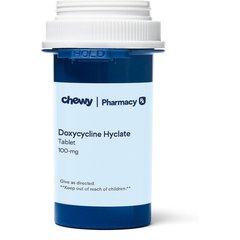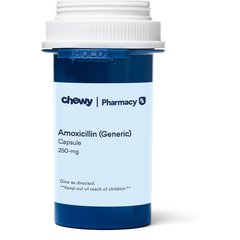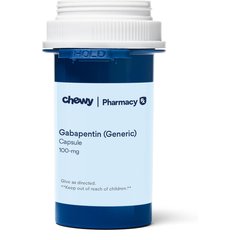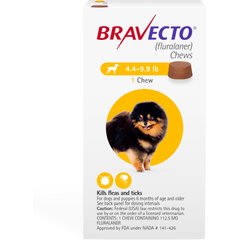Lyme Disease in Dogs: What To Know for Your Dog

Photo by Chewy
Lyme disease in dogs is a serious bacterial infection caused by tick bites. It can lead to joint pain, fever, and even kidney damage if left untreated. It can affect any dog, but those who spend a lot of time outdoors are at the greatest risk.
If you find a tick bite on your dog or a tick still attached to their skin, see your veterinarian as soon as possible. If left untreated, Lyme disease is life-threatening.
Key Takeaways
- Lyme disease is a serious, potentially life-threatening infection in dogs caused by bacteria spread through tick bites.
- Dogs who spend time outdoors—especially in wooded or grassy areas—are at the highest risk of Lyme disease.
- Common signs of Lyme disease include limping, joint pain, fever, lethargy, and appetite changes—though some dogs may show no symptoms at first.
- Veterinary treatment with antibiotics—such as doxycycline—can cure Lyme disease in dogs if started early.
- Monthly tick prevention, regular tick checks, and vaccination for high-risk dogs are the best ways to prevent Lyme disease.
What Is Lyme Disease in Dogs?
Lyme disease, also known as canine borreliosis, is a bacterial infection spread by ticks. It can affect any dog, but those who spend time in nature—such as hiking in wooded areas—have an increased risk because they’re more likely to encounter ticks.
Dogs are also more vulnerable if they’re not up-to-date on monthly tick prevention or have not been vaccinated with a Lyme vaccine, such as Nobivac Lyme.
When a tick bites and spreads bacteria, Lyme disease can cause a whole-body infection in a dog. If symptoms develop, it requires treatment by a veterinarian to eliminate the bacteria.
Fortunately, most dogs who are exposed to this bacteria do not develop symptoms, as their bodies are able to fight the infection. A veterinarian may only know there was exposure due to a positive result on an antibody screening, such as the Snap 4Dx test, during a routine wellness exam. This test only indicates exposure and not an active infection. In these instances, additional diagnostic testing, such as urine tests, may be needed and treatment may not be necessary.
Signs of Lyme Disease in Dogs
Some dogs may not have any symptoms if their immune system is able to control the infection. In these cases, your vet may recommend monitoring your pup or additional diagnostic tests.
However, some dogs with Lyme disease do experience symptoms such as:
- Joint pain
- Joint swelling
- Limping
- Fever
- Lethargy
- Decreased appetite
- Weakness
- Enlarged lymph nodes
- Vomiting
- Diarrhea
- Weight loss
- Swelling of the legs or belly
- Increased thirst
- Urinating frequently
Causes of Lyme Disease in Dogs
Lyme disease is caused by a bacterium called Borrelia burgdorferi, which is spread through the bite of an infected deer tick.
The tick must be attached for 24 hours before it can spread bacteria, so it’s very important to see a vet to remove the tick before then.
If the tick isn’t removed, the bacteria enter the dog’s bloodstream, and it can travel to the joints, brain, spinal cord, and the heart.
How Vets Diagnose Lyme Disease in Dogs
A veterinarian will usually diagnose Lyme disease with blood work or urine tests. These samples are checked for Borrelia bacteria or antibodies against it.
You should see a veterinarian for a diagnosis as soon as possible if your dog has been bitten by a tick.
If you suspect Lyme disease and your dog is experiencing lethargy, vomiting, increased drinking, or urinating frequently, take them to an emergency veterinarian immediately. Left untreated, Lyme disease can be life-threatening.
Treatment of Lyme Disease in Dogs
To reduce the risk of infections and inflammation, properly remove the entire tick—including its mouth—from your dog. It’s best to bring your dog to your veterinarian, who can remove it for you.
After tick removal, dogs with Lyme disease are treated with an oral antibiotic called doxycycline for at least 30 days. Other antibiotics, such as amoxicillin, can be used if a dog is unable to take doxycycline (for example, if they are pregnant).
Recommended Products
If a dog has joint pain or discomfort due to inflammation caused by the bacteria, pain medications like gabapentin may also be prescribed.
Recommended Product
Dogs with more severe Lyme disease will require additional treatment. If Lyme disease has caused inflammation of the kidneys (also known as nephritis), hospitalization and supportive care with IV fluids, nutritional support, and additional medications may also be recommended.
Recovery of Dogs With Lyme Disease
With treatment, most dogs have a good outcome. However, if the kidneys are inflamed, your dog’s recovery will be more challenging. Unfortunately, dogs with more severe cases don’t always survive Lyme disease.
In cases that are treated early, most dogs show signs of improvement just 24 hours after antibiotics are started. However, eliminating all the bacteria from a dog’s body can take about a month.
Providing your dog a comfy bed like the FurHaven Comfy Couch Orthopedic Bolster Dog Bed or the Frisco Faux Suede Bolster Bed can help your dog’s joints, which can become inflamed due to the bacteria that cause Lyme disease.
Recommended Products
Dogs with severe disease may have lasting damage that impacts their joints or kidneys. In these cases, you’ll want to keep a good eye on your dog and report any symptoms to your vet. You’ll also need to follow up with veterinary exams for blood work and urine tests every three to six months.
How To Prevent Lyme Disease in Dogs
To prevent Lyme disease in dogs, pet parents should:
- Keep dogs up-to-date on monthly flea and tick preventives, such as Bravecto, to prevent ticks from biting.
Recommended Product
- Vaccinate dogs with the Lyme vaccine to avoid illness if they are bitten.
- Limit exposure to heavily wooded areas or outdoor spaces with tall grasses where ticks are plentiful.
- Regularly check for ticks and have a veterinarian promptly remove any ticks.
How To Vaccinate Against Lyme Disease
The Lyme vaccine is a “non-core” vaccine for dogs, which means it is recommended for at-risk populations rather than all dogs. Many vets recommend it for dogs who spend time outdoors in wooded areas or who live in parts of the United States where Lyme disease is more common, such as the northeastern U.S.
Dogs must be at least 12 weeks old to get the Lyme vaccine. A booster is given three to four weeks later, followed by an annual booster if the dog is high-risk.
FAQs About Lyme Disease in Dogs
What are the first symptoms of Lyme disease in dogs?
Some dogs with Lyme disease may not show any symptoms. If symptoms do develop, they often begin with fever, swollen joints, and limping.
Is Lyme disease in dogs curable?
Yes, Lyme disease in dogs is generally curable with antibiotics. However, if the disease is severe at diagnosis, some dogs may have lasting damage that requires lifelong management.
Is Lyme disease in dogs contagious?
No, Lyme disease in dogs is not contagious. It is transmitted by tick bites, not direct contact.









